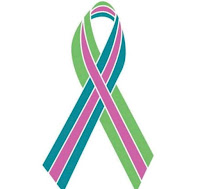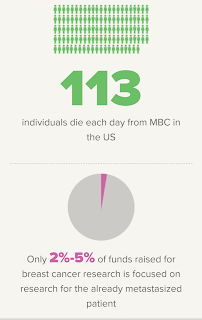A Tale of Two Homes
It’s an exciting time. I am transitioning care from Michigan to Colorado. I currently have two oncologists and two care facilities. So I decided I'd get my PET scanning in my future home. |
| My germ masks are a precious commodity |
It's not a perfectly good news story. My antigens are in the 5- and 6000s again. I'm not sure why. My bloodwork looks good. I seem to have red blood cell recruitment in my "appendicular skeleton" meaning my arms and hands and legs and feet. And my cervical spine hurts due to cancer, not arthritis, I learned. My first ability to go will be lifting, I suspect.
So I continue to live with the side effects, which is itself challenging. We are learning I have several tell-tale signs that my system is sub par: I am cranky, I get winded grocery shopping and I infect easily. Dumb things like finger nails or my nose become troublesome. And my GI system starts to get wobbly.
Life in the Age of Coronavirus
What a time to be immune-supressed! Life in the Age of the Coronavirus! Like the flu and even common colds, I need to avoid the COVID-19 like the plague. Pun intended.
For some reason, it didn't hit me that I would need more masks. I have a bunch. But if I'm going to go out in the next few months, I should wear a mask.
There are none to be had. Anywhere. Unless you have $400.
Yes, I'm well-informed about COVID-19. I've heard the pundits claim (to calm hysteria, likely) that masks won't help. But my own experience with common infection proved otherwise. You know the story, perhaps: on a plane back from Europe, a woman was dreadfully sick and coughing, all within striking distance of hubby and me. I wore a mask and glasses. He wore none. We were both equally careful.
By now you are imagining the outcome. Yes, he was sick with a bacterial bronchitis (and possibly a respiratory virus combo) within 48 hours. I got sick much later, hoping enough time had passed and he was not contagious. He was contagious still, many days later.
Masks work. And nothing about this virus’ size or shape makes it different for purposes of germ masks. It does live a long time on surfaces, and people often don't know they have it. But overall, a germ mask is at least some protection.
Problem is, I won't have access to a resupply for many months. Goodie.
So here are the common sense things you can do to help not kill me:
- Avoid close contact with people who are sick.
- Avoid touching your eyes, nose, and mouth.
- Stay home when you are sick.
- Cover your cough or sneeze with a tissue, then throw the tissue in the trash.
- Clean and disinfect frequently touched objects and surfaces using a regular household cleaning spray or wipe.
- Follow CDC’s recommendations for using a facemask. CDC does not recommend that people who are well wear a facemask to protect themselves from respiratory diseases, including COVID-19. (Editorial notes: I heartily disagree for the immune-suppressed.)
- Facemasks should be used by people who show symptoms of COVID-19 to help prevent the spread of the disease to others. The use of facemasks is also crucial for health workers and people who are taking care of someone in close settings (at home or in a health care facility).
- Wash your hands often with soap and water for at least 20 seconds, especially after going to the bathroom; before eating; and after blowing your nose, coughing, or sneezing.
- If soap and water are not readily available, use an alcohol-based hand sanitizer with at least 60% alcohol. Always wash hands with soap and water if hands are visibly dirty
This information and more may be found at:
https://www.cdc.gov/coronavirus/2019-ncov/about/prevention-treatment.html











